In the dynamic digital realm, achieving top rankings on search engines is crucial for the success of any online business or blog. Search Engine Optimization (SEO) is the backbone for enhancing your website’s position on search engine results pages (SERPs). To help you navigate the ever-changing landscape of SEO, we have curated a comprehensive compilation of the most effective SEO ranking factors that can propel your website to the coveted top spots in Google’s search results. From conducting keyword research and optimizing on-page elements to building valuable backlinks and ensuring optimal user experience, this section will delve deep into the key strategies and techniques you need to implement to amplify your website’s visibility, attract organic traffic, and surpass your competitors. Whether you’re a business owner or a dedicated blogger, equipping yourself with these invaluable SEO tips will set you on the path to online triumph, ensuring that your website emerges as a prominent player in your niche while captivating the attention of your target audience. So, let’s dive in and unlock the secrets to skyrocketing your website’s ranking on Google!
Understanding the Key Ranking Factors for SEO Success
Understanding Google’s critical ranking factors in search engine optimization (SEO) is paramount to success. These factors determine how search engines perceive and rank your website, ultimately impacting your visibility and organic traffic. Strategically placing relevant keywords in specific content areas is essential to optimize your website effectively. Let’s delve into the core components that shape your SEO rankings:
1. Search Engine Title (Title Tag/Meta Title): This is the title that search engines display to users. It is a crucial element for keyword optimization, where you should prominently feature your main keyword and other important terms. Aligning your title tag with your visitors’ experience is vital—what you show Google should be the same title your visitors see.
2. Page Title (H1 Tag): The page title is what visitors see as the heading on your webpage. It should be the only H1 tag on your page and closely resemble your title tag. Ensuring consistency between the title and H1 tags helps maintain coherence and relevance.
3. Subheadings (H2 or H3 Tags): Breaking your content into sections using subheadings enhances readability and user experience. These subheadings serve as titles for each section, and it’s essential to use appropriate H2 or H3 tags for them. Both visitors and search engines favor well-structured pages that offer easy navigation.
4. Body Content or Main Content: This is the meat of your webpage, comprising paragraphs and relevant information. To optimize your content, strive to incorporate your main keywords in four key places: the title tag, H1 tag, paragraph tags, and URL. By leveraging these strategic locations, you increase the visibility of your keywords to search engines, signaling the relevance of your content.
Exploring various factors, including technical SEO, on-page optimization, off-page ranking, keyword research, and content marketing, is essential to delve deeper into SEO rankings. Stay informed about industry updates, utilize reliable tools like Moz and Google Analytics, and prioritize mobile optimization to create a comprehensive SEO strategy. Remember, the quality and relevance of your content, the authority of your website, and the context of users’ search intent are all crucial elements in achieving higher rankings.
(I wanted to share a really useful SEO tool that I use to optimize my blog content. It’s called Pageoptimizer Pro. This fantastic tool provides a Content Brief Optimization Score, Word Count Target, and Page Section Recommendations. I find it incredibly helpful to have all of this information in one place, and it’s helped me improve the quality of my blog posts. I highly recommend giving it a try!)
Understanding and implementing these essential SEO ranking factors can optimize your website, improve your Google search engine visibility, and drive organic traffic. Stay focused, adapt to algorithm changes, and consistently provide high-quality content to enhance your online presence and reach your target audience.
Mastering Technical SEO to Boost Your Website Rankings
After understanding top Google ranking factors for SEO success, the next step is mastering Technical SEO to boost your website rankings. In this fast-paced digital world, ensuring the technical soundness of your website is paramount. The essence revolves around improving server connectivity, site speed, mobile optimization, and Google indexing, to mention a few.
Creating quality content that is valuable to your customers and optimized for Google search engines is a crucial element of Technical SEO. But regardless of how high-quality your content is, it won’t rank if Google search engines can’t find, crawl, and index your information. So, ensuring your website is structured so Google search bots can easily navigate is paramount.
The technical aspect also involves understanding and manipulating data and information to work in our favor. Using tools like Google Analytics and SEMRush can provide insightful data. This data can optimize your website by figuring out what’s working, what isn’t, and where improvements can be made.
Staying on top of your game with Technical SEO is about staying updated with Google’s ever-changing algorithms. It’s essential to stay updated with the latest SEO practices and make the necessary changes to your website’s technical aspects and content strategy to stay relevant and rank high on Google’s search results.
Remember that none of these tips will work if you’re consistent and patient. SEO is an ongoing process, and results can become apparent. At The Branding Agency, we will help you navigate these complexities using effective and strategic marketing techniques tailored to your needs. We have the tools and expertise to help your website reach the top of Google Search results and stay there.
Boost Your Website’s Rankings with Strategic SEO Factors
Unlocking a Google Featured Snippet can be faster than reaching page one rankings. Discover practical strategies to target and win a Featured Snippet. Craft concise, encyclopedic “answer targets” within 300 characters to claim the snippet. Aim for SEO factors, rankings, technical SEO, and off-page optimization. Leverage keyword research, quality content, and backlinks. Stay informed with Moz, WordPress, and Google Analytics tools. Optimize for mobile, search intent, and RankBrain. Elevate your SEO game with this comprehensive guide.
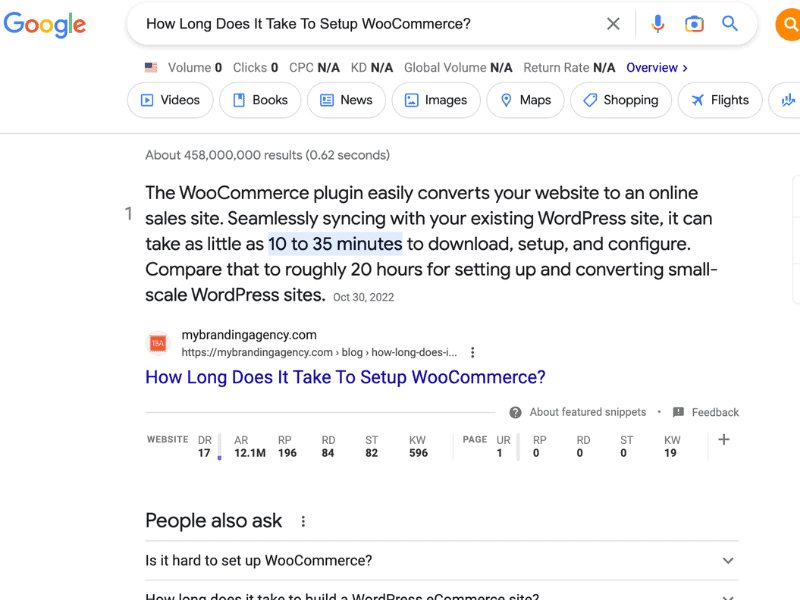
Elevate Your Content Strategy: Unleashing the SEO Ranking Potential
When it comes to optimizing your content for Google SEO rankings, precision is critical. By tailoring your content towards a specific search query or topic, you open up the possibility of ranking for multiple search queries, broadening your reach. Your article can address various topics people frequently search for on Google, increasing its value.
The secret lies in providing a comprehensive answer to the initial search query. By thoroughly addressing the question, you increase your chances of ranking well on Google and position yourself to secure a coveted Google-rich featured snippet. This can fast-track the ranking of your content and boost its visibility in Google search results.
Why begin with response posts? Well, response posts are generally easier to rank for on Google. They often cover long-tail topics, which fall within the bell curve of statistical search patterns. While top-rated queries, such as “What is the weather today,” dominate the middle of the curve with substantial search volume on Google, numerous other topics receive significantly less search volume. However, due to the sheer magnitude of daily searches on Google, even those lower on the curve can generate substantial traffic. Thousands of searches per month can still drive considerable visitors to your website through Google searches.
Now, let’s dive into the world of Google SEO ranking factors. From technical SEO to marketing content, numerous elements impact your rankings on Google. Factors like keywords, links, and user experience play crucial roles in influencing your position on Google search engine results pages (SERPs). Staying up to date with Google’s ever-evolving algorithms is essential for optimizing your content effectively for Google searches. Tools like Moz, WordPress, and Google Analytics can provide valuable insights and help you track your progress in Google search rankings.
Remember, mobile optimization, high-quality backlinks, and compelling titles are all part of the equation for Google SEO. By understanding search intent and creating informative, engaging content, you send strong signals to Google search engines, indicating the relevance and value of your pages. Optimize your domain, utilize PPC advertising, and leverage off-page ranking factors to improve your Google SEO strategy. These elements strengthen your overall SEO strategy and improve your visibility in Google searches.
You can elevate your online presence and attract more visitors by harnessing the power of Google SEO rankings and implementing a thoughtful content strategy. Stay informed, adapt to the ever-changing digital landscape, and provide valuable information that satisfies users’ search intent on Google. With time, dedication, and a focus on Google SEO best practices, your content can rise through the Google ranks and reach its full potential in Google search results.
Applying Keyword Research for High SEO Rankings
Keyword research is an integral part of attaining high Google rankings. As a digital marketer or web owner, synonymous with SEO and aiming for high search engine positioning, it is crucial to understand the relevance of keyword research and its application. You’re not just looking for words but specific Google keywords that resonate with your audience’s search intent. By doing so, you pave the path to high Google rankings. At The Branding Agency, we leverage data-driven strategies to optimize your website, increasing its visibility and prominence in Google SERPs.
SEO, or Search Engine Optimization, is a dynamic field where mastering keyword research is a continual journey. But it’s worth undertaking as high Google rankings translate to more site visits, potential leads, and a higher conversion rate. There are various techniques to unearth these golden Google keywords that boost your website’s relevance and subsequent Google ranking. The Branding Agency believes in blending creativity with data to deliver impactful results. Improving your content strategy with strategic keyword research increases your chances of securing top Google SEO rankings.
Diving into keyword research, you’re not just dealing with words but a treasure trove of data that can skyrocket your site to the top of Google’s results. It’s all about understanding search intent, i.e., what your audience will likely type into the Google search bar. When your content aligns with search intent, it gains relevance and is more likely to rank high in Google. The SEO landscape is multifaceted, but with the right tools, like keyword research, your journey to high Google SEO rankings becomes smoother and more rewarding.
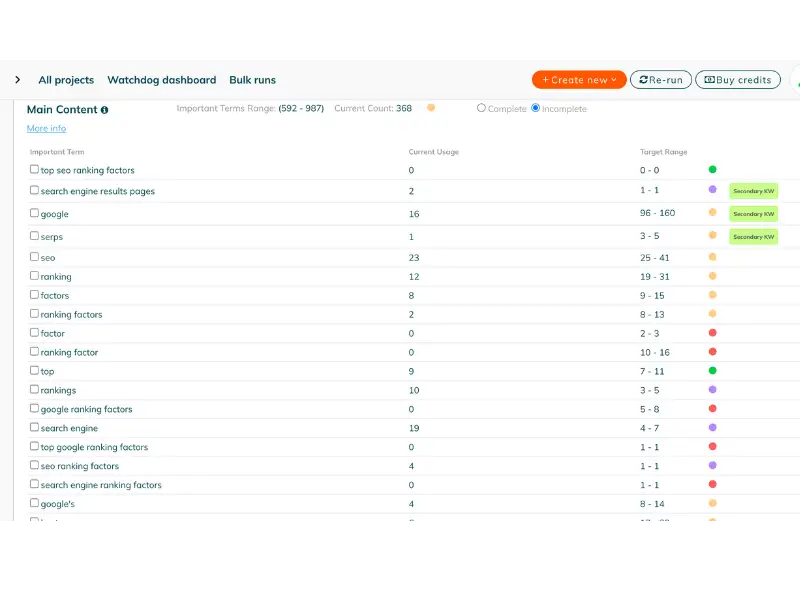
How Website Freshness and Relevance Affect Your SEO Ranking
Are you aware that the freshness and relevance of your website are critical SEO ranking factors that can significantly impact your website’s position on the Google search engine results pages (SERPs)? What exactly does website freshness entail? It should depend on how often you upload new content and how timely and relevant it is. Regularly updating your pages with fresh, relevant data is a solid strategy to enhance your SEO ranking since search engines perceive updated information as indicating a site’s relevance. For instance, if you run a blog, publishing articles regularly means that your site is active and current to Google’s algorithm.
On the other hand, website relevance is determined by how well a page corresponds to the search query. Producing new material must be closely aligned with what users seek, based on SEO keyword research. Google provides users with the most appropriate search results using relevance in its algorithm. Therefore, a page’s relevancy and freshness can directly impact its position on the SERPs.
Engaging in keyword research allows you to uncover the terms and phrases your audience uses to find similar content, allowing you to optimize your website’s pages accordingly.
Consider incorporating a strategy focusing on website freshness and relevance to boost your SEO ranking. The Branding Agency’s focus is to assist businesses in putting these strategies to use to gain a competitive edge in the ever-changing world of SEO. Remember, staying up-to-date with Google and current data and ensuring the relevance of your content will not only improve your standing in SERPs but provide your audience with the high-value information they’re seeking.
To summarize, a strategy emphasizing website freshness and relevance is worth considering to enhance your SEO ranking. The Branding Agency’s focus is to assist businesses in putting these strategies to use to gain a competitive edge in the ever-changing world of Google and SEO. Remember, staying up-to-date with current data and ensuring the relevance of your content will not only improve your standing in SERPs but also provide your audience with the high-value information they’re seeking.
Exploring Backlink Factors: The Best SEO Tool for Website Ranking
When discussing SEO or Search Engine Optimization, backlink factors invariably come into play. These factors are a powerful SEO tool that directly influences your website’s Google ranking. Backlinks, or links from other websites that point to yours, act like votes in search engines, including Google’s complex algorithm. They indicate to search engines that your site contains credible, relevant content.
Effective management of backlinks can boost a page’s SEO performance dramatically. But how does one manage or even create these backlinks? Various tools on the market can help you identify productive backlinks and weed out the ones that harm your website ranking. These tools offer metrics and data about your backlinks, such as their source, quality, and how they impact your SEO.
However, it’s about more than just accumulating a large quantity of backlinks. The focus needs to be on quality. Google’s algorithm is increasingly intelligent, robust, and sensitive to manipulative link-building strategies. Therefore, natural, high-quality links from reputable websites are favored over low-quality or purchased links. The experience a user has when visiting your linked website also plays a significant role- so creating a user-friendly, engaging, and informative site is a must.
Backlinks are, without a doubt, a crucial part of a comprehensive SEO strategy and a critical factor in your Google website ranking. Our previous articles have discussed other significant factors like keyword research, content development strategy, technical SEO, and understanding Google’s ranking factors. Now, with an additional understanding of backlink factors, you can employ a well-rounded approach to SEO. Experiment, innovate, and reshape your SEO strategy as search engines evolve and drive your website to the top of the search results.
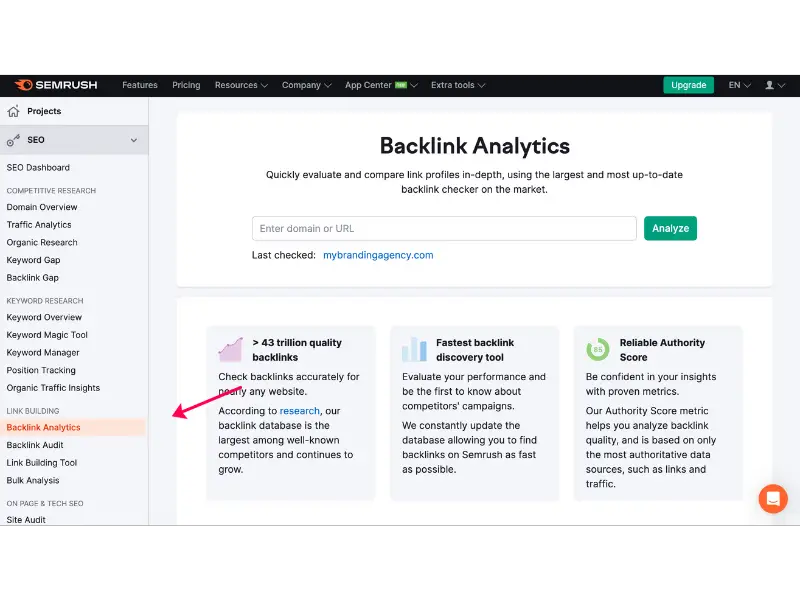
Role of Backlinks in Lifting Website’s Position on Search Engines
Backlinks exceed the primary role of accelerating your website to the top of search engine rankings. They also contribute to enhancing user experience. An end user landing on your site through a backlink will likely perceive your site as trustworthy. When a website links back to your site, it casts a vote of confidence in favor of your content. In the world of SEO, experts highly value such links. Consequently, generating high-quality backlinks is vital to enhancing your website’s position and user experience.
Notably, Google’s indexing systems treat backlinks as a significant factor when determining the relevance and authority of a website, pushing those with quality backlinks to the top of search results. You subtly promote your website to users and search engines by incorporating backlinks into your SEO strategy. An excellent balance of quality and quantity in your backlink profile can help your website rise to the top of the SERPs.
Remember, not all backlinks are created equal in the eyes of Google’s algorithms. Websites that secure backlinks from well-established, high-authority websites stand a greater chance of ascending to the top positions in search results. Therefore, it is crucial to strategize and focus on acquiring these valuable backlinks as part of your SEO game plan. At The Branding Agency, we guide you through this strategic process, guaranteeing excellent results in improving your website’s ranking.
Page Ranking Factors: Analyzing Competition A Key to Unraveling Google’s Search Results
The competition is crucial to consider when understanding Google’s search results. Take a practical example by searching for “What to do with curly hair while exercising?” Observe the top results, starting with the Google snippet positioned at the very top. This coveted spot signifies that someone has successfully answered the question. Now, shift your attention to the other companies appearing in the search results.
Scrolling down a few entries and stumbling upon a forum-based website like https://www.quora.com/ on the first page indicates a scarcity of content addressing this fact-based question. Typically, forums are considered to have lower-quality content compared to well-written articles by expert bloggers. This suggests that the competition beyond the forum site could be more robust, presenting a favorable opportunity for fast ranking.
However, there are exceptions to this rule. For instance, if individuals seek opinions or a consensus on a topic, a forum site might be the ideal search result. In such cases, you may only want to create a blog post if you can compile a survey that effectively aggregates various people’s opinions.
The Role of SEO Ranking Factors in Google’s Search Engine Algorithm
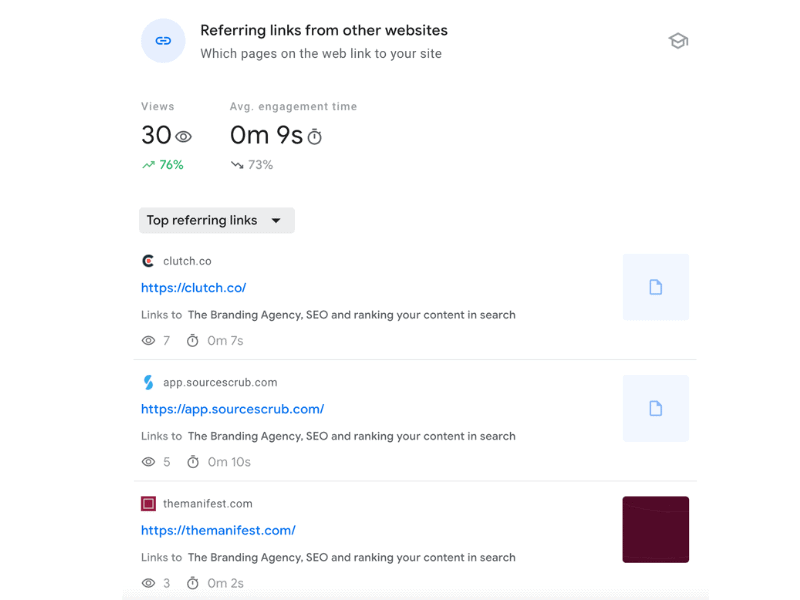
While Google discourages direct payment for links, it does allow for advertising opportunities. Native advertising, for instance, presents a natural-looking form of ad placement that can blend seamlessly with the surrounding content. A prime example of native advertising is a guest post. Paying for a guest post is acceptable if you are transparent and indicate that it is an advertisement. Being open and honest about your intentions can also help you steer clear of any potential issues with link building.
Note: The information in this section is particularly relevant once your site reaches a Domain Rating (DR) of 25 or higher.
Harnessing the Power of HARO for Link Building
To effectively build links using HARO (Help a Reporter Out), we employ a comprehensive four-step strategy that begins with thorough industry research. Our team meticulously sifts through numerous journalist requests daily to identify relevant opportunities to which we can respond on your behalf. Our experts craft insightful and unique quotes that add value to journalists’ articles while carefully considering your brand’s image. Furthermore, we offer real-time reporting, promptly notifying you as soon as a link is secured so that you can witness the incoming links firsthand.
Expanding Link Building Opportunities through Podcasts
Are you seeking innovative ways to earn high-quality links for your company? Being a guest on other podcasts can be an effective method to achieve just that. Podcasts have emerged as one of the fastest-growing marketing channels, with far-reaching impacts beyond the immediate listenership.
One of the primary advantages of podcasts is their ability to drive searches for individuals or companies. These branded searches can send positive signals to Google, influencing suggestions and enhancing overall rankings. Additionally, most podcasts have accompanying websites, which facilitates reciprocal linking. The podcast website typically links to the guest’s website in the episode post, while the guest and their fans link back to the podcast episode on the podcast website. Hosting a podcast and being a guest on other podcasts can significantly contribute to earning high-quality links.
If you aspire to be a guest on other podcasts, it’s crucial to pitch your story in a way that captures the host’s interest. Podcasters who follow an interview format constantly seek engaging and knowledgeable guests. However, it’s essential to approach your pitch from their audience’s perspective rather than solely focusing on your interests. By understanding what their audience truly cares about, you can tailor your pitch to explain why your story will resonate with them. Remember, constant email follow-ups are futile; if podcasters are genuinely interested, they will respond.
Local Links: Nurturing Community and Organic Growth
Local sponsorships and meet-ups offer excellent opportunities for acquiring valuable local links. Consider offering a conference room to local groups for monthly meetings if you have a conference room. By doing so, you can obtain a potent local link from the group’s website. If you lack the physical space, seek out groups actively seeking sponsors. You can establish your presence and gain powerful, relevant links by contributing around $50 to $60 monthly for their snacks and coffee. Getting involved in the local community and employing grassroots marketing tactics can lead to the most impactful and organic links, reminiscent of traditional marketing methods before the advent of the internet.
The Significance of SEO Outreach in Ranking Factors
Understanding SEO outreach and its role in digital marketing efforts is crucial. In essence, SEO outreach encompasses activities and processes to connect with potential link prospects to acquire high-quality backlinks from authoritative websites. These backlinks are essential for improving a website’s search engine ranking. Such links are necessary for even the highest-quality content to be noticed by search algorithms.
Many companies turn to link-building agencies or SEO outreach specialists for assistance, while others leverage their resources or a combination of them. Regardless of the approach, a successful outreach strategy can significantly impact a company’s online visibility.
One popular approach to SEO outreach is the resource pages strategy. This entails identifying relevant content published by others in your industry or niche that doesn’t mention your brand. By reaching out to these prospects and elucidating the value your business can offer, you increase the likelihood of being included in future publications.
✅ SEO outreach is a powerful tool for enhancing your website’s search engine ranking and increasing online visibility. You can achieve sustainable success in the digital marketplace by prioritizing high-quality backlinks and cultivating relationships with potential link prospects.
Optimize Your Outreach Efforts with Respona
If you are seeking to streamline and optimize your outreach campaigns, Respona is the ideal solution for your needs. Designed specifically for B2B SaaS and agencies to enhance organic traffic from Google, this link-building outreach platform automates every step of your email outreach campaigns. From identifying perfect opportunities to creating and customizing email sequences, Respona simplifies the process. With its live search engine, you can easily explore potential matches or import your existing contacts from your preferred applications. Additionally, Respona’s AI-powered functionality assists in identifying the most appropriate person to contact for each opportunity. Moreover, the tool enables deep personalization of your pitches, ensuring your emails stand out.
Exploring the Art of Internal Link Building: Optimizing Anchor Texts for Effective SEO
Internal link building is crucial in enhancing your website’s SEO rankings. One key aspect of this strategy is anchor text optimization. The goal is to create diverse anchor texts that appear natural to Google. Here are four types of anchor texts commonly used:
1. Branded Anchors include business names, website URLs, and author names. Branded anchors are the most frequently occurring and natural anchor texts.
2. Topical Anchors: These anchors are related to the target keyword. For example, if the keyword is “best dog food,” topical anchors could be “pet diet” or “pet care.”
3. Miscellaneous Anchors: These are generic phrases like “click here,” “this website,” or “check out this page.”
4. NA Anchors: These anchors don’t fit a specific category. They may include irrelevant anchors, gibberish text, numbers, or non-English phrases. The aim is to direct these anchor texts to a designated page, such as a money or purchase page.
You can analyze websites that rank high for your target keyword to gain insights into competitor strategies. For example, let’s consider the sites https://thelonghairs.us/ and https://www.teleties.com/. While not at the top, they have impressive Domain Authority scores of 45 and 40, respectively. Using Ahrefs.com, navigate to the site explorer and enter their URLs. Scroll down to the anchors tab to access a list of all anchors pointing to the respective page. Export this list into a spreadsheet, retaining only the anchor text and referring domain columns. Create a new “anchor type” column and categorize each anchor accordingly.
Using Google Sheets, generate a pivot table from this data, showcasing the number of referring domains for each anchor type. Visualize your competitor’s anchor text distribution through pie charts or other formats. Repeat this process for your top five competitors and calculate the average. This will give you a natural anchor text distribution benchmark for your niche.
Ensure you follow a few rules when optimizing anchor text. Avoid using the exact anchor text repeatedly. The objective is to achieve a natural appearance, so diversify your anchor texts and refrain from excessive targeting. Additionally, match your anchors with the corresponding link type. Blogs, articles, forums, and blog comments are familiar sources of links, where descriptive anchors inform readers about the linked content. For target anchors, use proper English and consider incorporating relevant keywords around your non-target anchors. For instance, if your keyword is “best protein powder,” you could use phrases like “to learn more about the best protein on the market, click here.” This helps Google understand the focus of your page—protein powder.
✅ Understanding and implementing effective internal link-building strategies and optimized anchor texts can significantly improve your website’s SEO rankings. You can achieve safer and more favorable results by analyzing competitor approaches and adhering to best practices.
Establishing Authority and Trust: Key Factors in SEO Rankings
Building authority and E.A.T. (Experience, Expertise, Authoritativeness, and Trustworthiness) is crucial to enhance your SEO rankings. This, in turn, will enable you to rank higher for a broader range of topics. Elevating your Experience, Expertise, Authoritativeness, and Trustworthiness (E.E.A.T) is paramount.
✅ Here’s a comprehensive checklist of essential elements that should be present on your website for validation:
- Incorporate all essential company contact information, including the name, phone number, local address, and email.
- Create an informative “About Us” page on your website, offering insights into your company’s background, values, and mission.
- Add or create an author profile showcasing your content creators’ expertise and credentials.
- Implement a privacy policy demonstrating your commitment to protecting user data and ensuring confidentiality.
- Provide a clear and comprehensive terms of service section outlining the terms and conditions for using your website’s content or services.
- Include links to your social media profiles, such as your LinkedIn URL, to establish a stronger online presence and enhance credibility.
By checking off these items, you will signal to Google that there is a legitimate entity behind your website and convey to your audience that your content can be trusted. Incorporating these SEO ranking factors, such as authority building, E.A.T., and trustworthiness, will help optimize your website and improve your rankings for relevant keywords and search queries.
Building authority, trust, and expertise takes time and consistent effort. By understanding the importance of these factors and implementing the right strategies, you can improve your website’s visibility and achieve higher rankings in search engine results.

Truth Behind ‘HTTPS as a Ranking Factor’: Unraveling SEO Secrets
‘HTTPS as a ranking factor’ has been a hot topic in the SEO sphere, uncovering truths behind shared SEO secrets. As of late, SEO professionals and digital marketers have witnessed how Google has commended the importance of secure data transmission. Let’s unpack the truth behind this, unravel the nitty-gritty, and explain how HTTPS significantly influences your website’s ranking position on Google.
HTTPS, or Hyper Text Transfer Protocol Secure, became a Google ranking factor in 2014. The objective of this initiative was to provide a secure web experience to all users. Unsurprisingly, Google prioritizes websites that use a secure HTTPS connection over its non-secure counterpart, HTTP. It’s part of their page experience signals, heavily considered when deciding which site to feature the most in search results.
Statistics reveal that over half of the websites that occupy the top 10 Google search results utilize HTTPS. Implementing HTTPS creates a secure environment for your audience to browse and share information, fostering trust and potentially increasing click-through rates for your ad inventory.
We’ve established that HTTPS is a ranking factor, but our unraveling continues. Quality content is the cornerstone of any SEO strategy. Despite the green padlock adorning your URL, achieving top rankings in Google search results becomes increasingly challenging without high-quality content. Simply put, HTTPS alone is not enough. It’s one aspect of a multifaceted approach that includes superior content, keyword optimization, reliable backlinks, and an optimal mobile-friendly design to achieve enviable Google rankings.
Take advantage of these insights and tighten your SEO strategy. Remember, with every minor tweak, you’re inching closer to the top-ranking spot. While HTTPS is one piece of the puzzle, combined with other effective strategies, it can pave the way for promising SEO success, propelling your website to the forefront of Google’s search results.
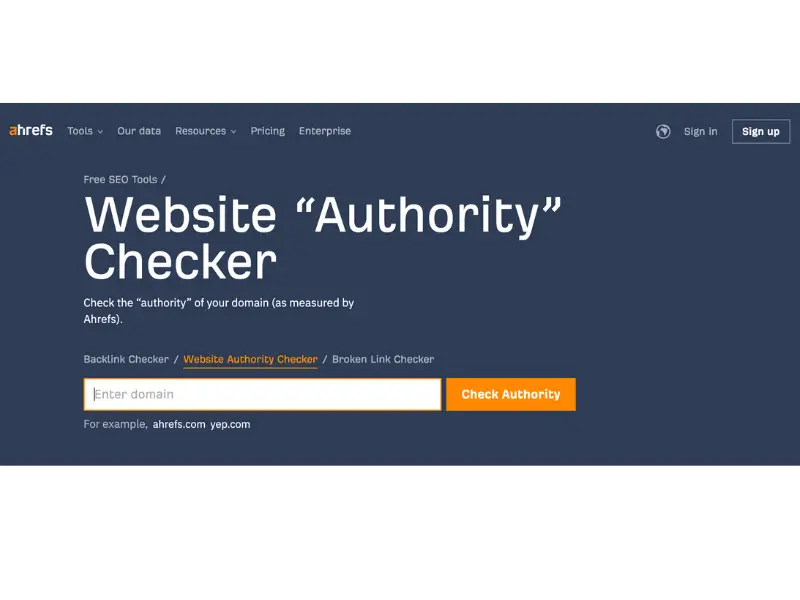
Optimize Your Image Ranking on Google Search with Effective SEO Strategies
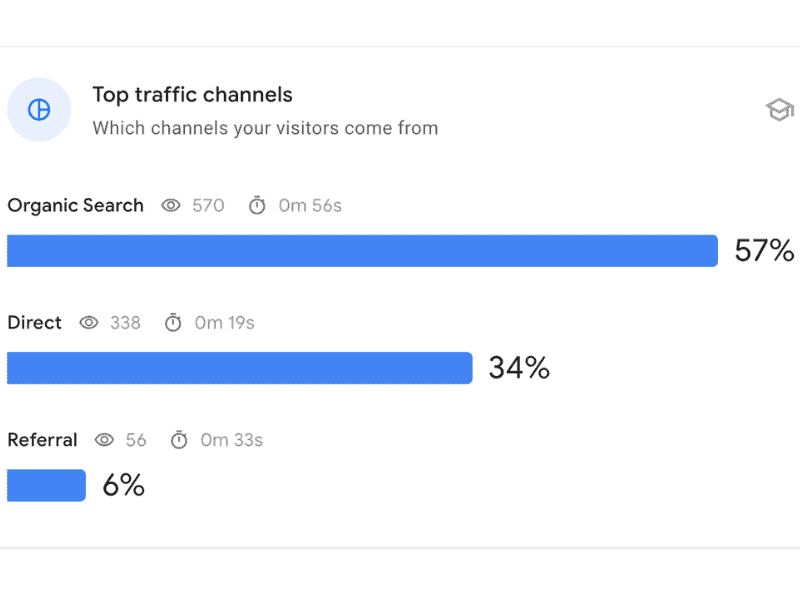
It’s no secret that visuals play a crucial role in attracting and engaging online users. With Google being the dominant search engine, optimizing your images to improve their visibility and ranking on Google Search is essential. Implementing effective SEO strategies tailored for images can significantly enhance your online presence and drive organic traffic to your website. Here are a few key strategies to optimize your image ranking on Google Search:
Step 1: Choose the Perfect Keyword
Step 2: Select an Image – Choose a captivating picture for Google Images ranking. It doesn’t necessarily have to correspond directly to the search query, especially for non-competitive searches.
Step 3: Optimize the File Name – Rename the image file with your target keyword for better-ranking prospects.
Step 4: Add a Keyword as an Alt-Tag – While optional, it’s recommended to enhance the chances of leading visitors back to your website from search engines.
Step 5: Expand Your Reach – Share the image on various image-sharing platforms like Tumblr. This step helps in increasing visibility and reach.
Boosting SEO Rankings through Technical Factors: Optimizing Pages for Search Engines
When it comes to making your website user-friendly, there are a few technical factors that you should consider. These factors not only improve the experience for your visitors but also contribute to better search engine rankings. Let’s take a look at some key areas you can focus on:
1. Site Speed:
One of the first things to pay attention to is the speed of your website. Slow-loading pages can frustrate visitors and lead to higher bounce rates. You can optimize your site speed by minimizing the number of HTTP requests, optimizing images for faster loading, and reducing redirects.
2. Mobile Optimization:
Given the increasing number of people accessing the web on their mobile devices, ensuring your website is mobile-friendly is crucial. Responsive design is essential, allowing your site to adapt seamlessly to different screen sizes. Additionally, improving page load speed and intuitive navigation on mobile devices can significantly enhance the user experience.
3. Indexing and Crawling:
To ensure that search engines can effectively crawl and index your website, it’s crucial to optimize certain elements. Start by optimizing your sitemap, a file that helps search engines understand the structure of your site. You can also optimize the robots.txt file, which tells search engines which parts of your site to crawl and which to ignore. Lastly, consider implementing canonicalization, which helps consolidate duplicate content and directs search engines to the preferred version.
By addressing these technical factors, you can create a smoother and more enjoyable experience for your website visitors while improving your search engine visibility. Remember, a website that loads quickly is mobile-friendly, and is easily navigable can significantly engage your audience and drive traffic.
Top SEO Ranking Factors: Turning Your Website Content into Google’s Favorite
Uncovering the top SEO ranking factors isn’t just a trend; it’s a necessary strategy to elevate your website content and make it Google’s favorite. It’s no secret that Google’s algorithm is complex and ever-changing. However, certain elements remain consistent; understanding these can help ensure your site ranks well.
Firstly, it all begins with quality content. Google loves relevant, engaging, and informative content. It’s what Google thrives on. Therefore, invest in creating unique and insightful content for your pages. And remember, it’s not just about volume; focus on providing value, and your audience will invariably trust your content, effectively sending positive signals to Google’s algorithm.
But that’s not all. Technical SEO is another critical aspect that can help turn your website content into Google’s favorite. It guarantees that Google understands your website and can substantially boost your rankings. Master elements like mobile friendliness and page speed, and ensure that your site uses HTTPS; all these are significant within Google’s SEO ranking factors.
Furthermore, in Google’s eyes, more is needed to have your website filled with quality content; it also needs to be fresh and, most importantly, relevant to user searches. Keeping your content updated according to the latest trends and user preferences will help you reach your desired audience and increase your website’s relevance, thus pushing it further up in Google’s rankings.
Lastly, always appreciate the power of backlinks to gain Google’s favor. High-quality backlinks create trust and authority and can significantly lift your website’s positioning on Google. It’s time to turn your website content into Google’s favorite by leveraging the top SEO ranking factors. Google your way to success!




